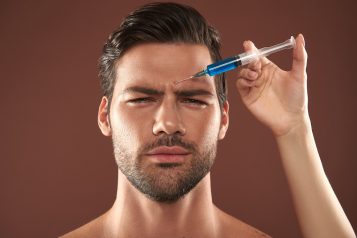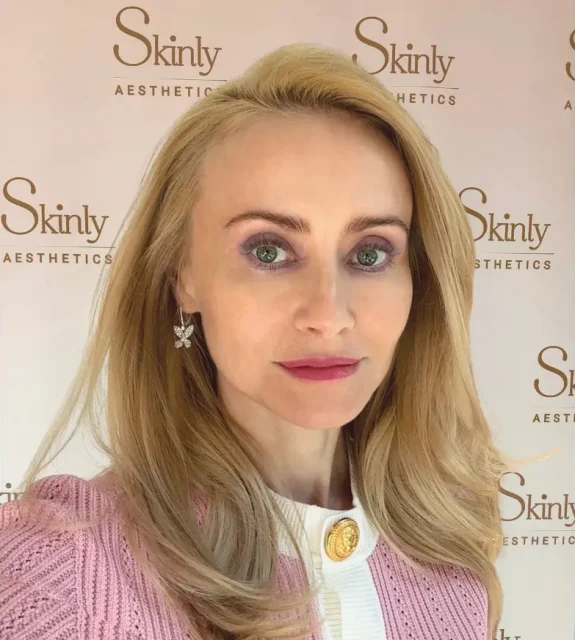Dr. Leita Harris has been delivering health care to women in the Inland Empire in California since 1990. Harris started Nurturing You Women’s Health & Wellness in June of 2015 after 25 years of practicing in multi-specialty groups, with the first 15 years was a full scope OB/GYN practice. Throughout her career, Dr. Harris has found the need to re-examine ‘medicine’ and the methods with which she was practicing. In 2008, Dr. Harris transitioned into a role that allowed her to see only GYN clinic patients and her use of bio-identical hormones in practice began to blossom as she continued at this practice until 2015, at which time she founded Nurturing You. Throughout her research and studies, Dr. Harris has also learned how to manage male hormone patients so that she can leave her female patients feeling great, and their partners as well. For Dr. Harris, the best part of her day is seeing someone experience tremendous life-changing benefits, especially after they have been ignored or neglected truly exceptional care.
 Photo Credit: Shutterstock
Photo Credit: Shutterstock
It might come as a surprise to you, or it might not, but when it comes to your overall physical and emotional wellbeing, satisfying sex is key at any age. The strong emphasis on satisfaction derives from the possible sexual issues you can experience as both a male and female. Though it may seem unlikely, the Cleveland Clinic documents that sexual dysfunction affects about 30% to 40% of women.
An Overview
In the category of sexual dysfunction lies a plethora of potentially recurrent problems with sexual responses, the inability to orgasm, and the lack of sexual desire that can begin at any stage of life. It is very complex so the purpose of this writing is not to be exhaustive but rather to open the channel of awareness that sexual dysfunction exists, can be from many causes, and can be addressed with a variety of treatment modalities. It is therefore important to be sure to openly discuss it with your health care professional who is experienced in managing it since it can cause a great deal of distress to you personally as well as in your relationships.
The symptoms vary and are dependent on what type of sexual dysfunction exists so we’ll focus on and combine sexual interest and arousal disorders and what it means. Sexual arousal disorder is when your desire to have sex is still present, but you have difficulty reaching a state of arousal, becoming aroused, or even maintaining arousal during sexual activity. Low sexual interest (low libido) is a lack of interest to be sexual.
The causes of sexual desire and arousal problems can be related to physical and psychological factors, which include:
- You reach arousal when parts of your female reproductive system (clitoris, vagina and labia) receive increased blood flow. Blood flow disorder directly affects arousal by preventing blood flow to those essential places.
- Menopause resulting in low estrogen levels, low testosterone levels, and other hormone imbalances can cause vaginal atrophy or dryness, making sex painful and overall unenjoyable and/or reducing sex drive which can subsequently affect your arousal ability.
- When your stress levels are high, your cortisol levels rise, lowering your sex drive.
- Strains in your relationship can lead to unhappiness and not wanting to have intercourse with your partner.
- History of abuse, sexual or otherwise is known to affect one’s ability to engage in healthy sexual relationships.
- Body image concerns affect one’s view of themselves resulting in discomfort with being vulnerable in intimacy.
- Medical conditions that cause painful intercourse (endometriosis, vaginismus, vaginal infections, lichen sclerosis, large fibroids, etc.) or mental health disorders such as depression.
- Chemicals such as medications can dampen your arousal such as antidepressants or excessive narcotics or alcohol.
Once the cause is determined, the management can be focused. Many times, just understanding and finding out the reason can be very relieving and can help promote improved sexual satisfaction. When it comes to balancing hormones, keep in mind that options exist.
Vaginal estrogen cream, suppositories, rings, or tablets can be used to reverse atrophy as can a vaginal CO2 laser procedure. If your androgens are low (DHEAS, testosterone), restoring good levels can be very effective. Although studies have been controversial, I have had significant success in my practice with replacing androgens. Androgens can also be given in a variety of forms such as topical, pellets, suppositories, etc. If you research, you can find other FDA-approved medications, but they have serious side effect profiles.
Again, this is not meant to be exhaustive but understanding that there is “medically identified” female sexual dysfunction opens the door to getting on the path to change. It does take acknowledging that there are many factors (that may be complex) but you also have information to weigh and decide to address the distress that you may be experiencing.






















